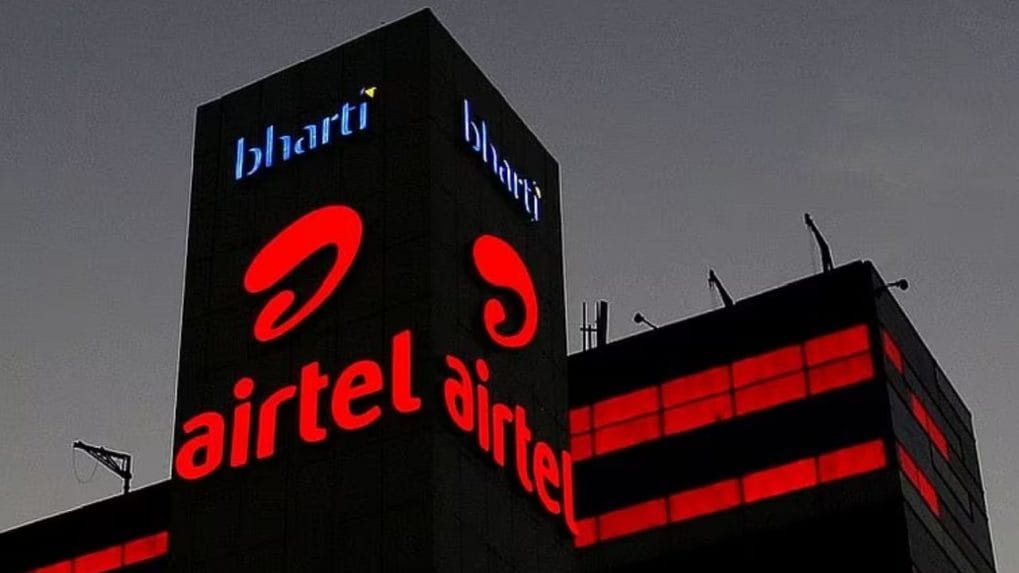How it Works
WPP, Havas, Omnicom: Are advertising’s biggest holdcos recasting agencies as AI Operating Systems?

Bharti Airtel Ltd ramped up its focus on customer acquisition, digital trust, and brand positioning in FY 2024–25 with a calibrated increase in marketing expenditure. The telecom major reported a standalone advertising and marketing spend of ₹605.2 crore, marking a modest 3.2% increase from ₹586.3 crore in FY 2023–24.
Consolidated advertising and marketing spends, however, saw a slight contraction to ₹1,079 crore from ₹1,093.5 crore the previous year, as the company optimized outreach across its multiple verticals and geographies
The growth in marketing investments reflects Airtel’s intensified push for deeper digital engagement, subscriber growth across 5G and broadband segments, and an integrated experience across content and enterprise platforms.
Alongside advertising campaigns, Airtel continued to build digital trust through its AI-powered Anti-SPAM solution, which blocked over 37 billion spam calls and 1.4 billion spam SMSs in FY25 — part of its broader push to deliver safe and secure digital experiences.
Airtel also saw a marginal increase in consumer grievances related to advertising content. The company reported three consumer complaints concerning its advertising in FY 2024–25 — up from one complaint in the previous fiscal year (FY 2023–24). These complaints were addressed in line with company policy and regulatory standards, according to disclosures in its Business Responsibility and Sustainability Report (BRSR). While there is no specific mention of ASCI complaints or their resolution count in the company’s official disclosures.
Alongside marketing campaigns, Airtel continued to build digital trust through its AI-powered Anti-SPAM solution, which blocked over 37 billion spam calls and 1.4 billion spam SMSs in FY25 — part of its broader push to deliver safe and secure digital experiences.
The company’s approach to consumer outreach is also becoming increasingly digital. Airtel continues to invest in platform-based marketing via the Airtel Thanks app, programmatic ad placements, and AI-powered customer insights to target high-value segments. Its exclusive partnerships with Apple TV+, Netflix, and other content providers have also been widely marketed through integrated campaigns.
The company’s consolidated revenue reached ₹1,81,511 crore, marking a 10.4% year-on-year increase, driven by strong performance in its India mobility, homes, and enterprise segments. Its EBITDA after leases (EBITDAaL) rose sharply to ₹93,296 crore, representing a margin of over 51%. On a standalone basis, Airtel India reported revenues of ₹1,08,944 crore, with ₹53,374 crore in EBITDAaL and a standalone net profit of ₹20,010 crore.
The robust financials came on the back of industry-leading ARPU growth, higher 5G and postpaid customer additions, and strong momentum in its broadband and digital TV businesses.
Gopal Vittal, Vice Chairman and Managing Director stated, "On Digital TV, despite DTH industry headwinds, we achieved a record high market share. We are making structural changes to our DTH business by eliminating subsidies, which will benefit cash flow. Our IPTV launch has seen encouraging response from customers, offering enhanced convenience, a superior user experience, and the flexibility to watch on-demand content, catch up content as well as linear broadcast content."
Sexual harassment complaints
In FY 2024–25, Bharti Airtel received 15 complaints of sexual harassment under the Sexual Harassment of Women at Workplace (Prevention, Prohibition and Redressal) Act, 2013. All cases were disposed of within the year, with 10 complaints upheld by the Internal Complaints Committee. In FY 2023–24, 17 complaints were filed and 9 were upheld for sexual harassments.
In addition to sexual harassment, Airtel also received one complaint of discrimination at the workplace and three complaints related to other human rights issues in FY25, all of which were resolved with no pending cases at year-end. The company reported zero complaints pertaining to child labour, forced or involuntary labour, or wage-related issues in both FY24 and FY25.
From purpose-driven work and narrative-rich brand films to AI-enabled ideas and creator-led collaborations, the awards reflect the full spectrum of modern creativity.
Read MorePraveen Someshwar, Managing Director and CEO of Diageo India, joins the Grand Jury of the Storyboard18 Awards for Creativity, highlighting the awards’ focus on work that blends cultural relevance with strategic and commercial impact.